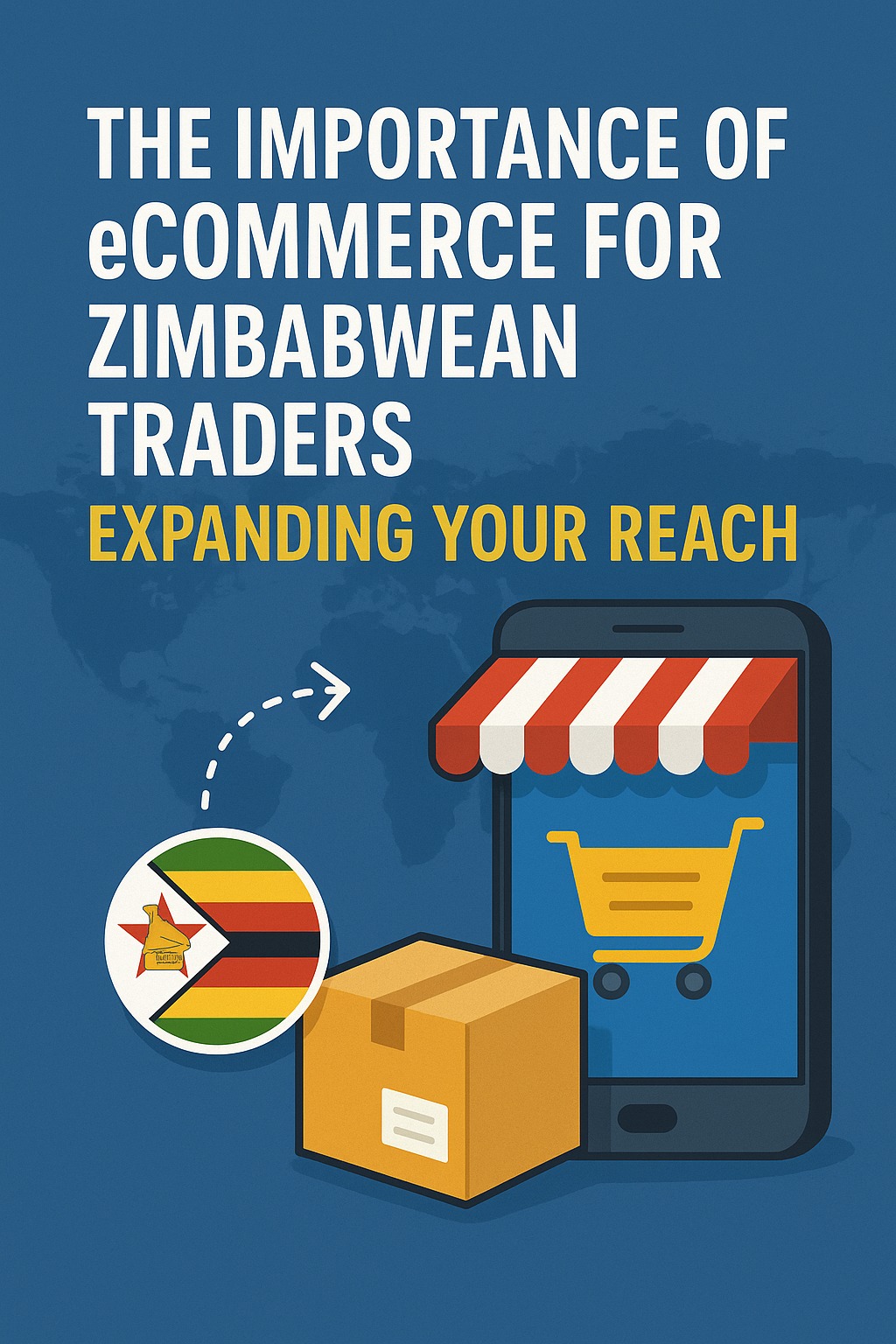
The Importance of eCommerce for Zimbabwean Traders: Expanding Your Reach

In an increasingly interconnected world, the traditional brick-and-mortar business model—while still vital—is no longer be sufficient for sustained growth. For Zimbabwean traders, embracing eCommerce is not just an option; it’s a strategic imperative. A robust online presence lets you overcome geographical limitations, connect with a broader customer base, and compete both locally and globally. Below are seven key reasons why moving online can transform your business.
1. Expanded Market Reach Beyond Borders
Sell nationwide and beyond: An online store breaks free from local foot traffic.
Tap into regional demand: Reach customers across SADC countries and international markets.
Showcase unique products: Let global buyers discover Zimbabwean crafts, fashion, and agricultural goods.
2. 24/7 Accessibility and Convenience
Always open: Customers can browse and buy any time—day or night.
Cater to varied schedules: Ideal for shoppers facing transport challenges or busy workdays.
Boost sales potential: Extended hours mean more opportunities for transactions.
3. Reduced Overhead Costs
Lower operating expenses: No rent, fewer on‑site staff, and simplified utilities.
Predictable digital costs: Web hosting and marketing budgets are easier to manage.
Reinvest savings: Use freed‑up capital for inventory, product development, or customer service.
4. Enhanced Customer Insights and Personalization
Data at your fingertips: Track which pages customers visit, what they add to cart, and where they drop off.
Tailored experiences: Use browsing history and purchase patterns to recommend related items.
Improve decision‑making: Let hard numbers guide product launches, pricing, and promotions.
5. Improved Marketing and Branding Opportunities
Centralized hub for campaigns: Integrate social media ads, email newsletters, and search engine marketing.
SEO advantages: Well‑optimized product pages drive organic traffic from Google and Bing.
Build credibility: High‑quality images, detailed descriptions, and genuine customer reviews increase trust.
6. Efficient Inventory Management
Real‑time stock tracking: Prevent overselling and identify fast‑moving items.
Automated alerts: Set notifications for low stock to reorder in time.
Streamlined fulfillment: Sync sales channels so every sale updates your inventory database immediately.
7. Adaptability and Scalability
Easy updates: Add new products, adjust prices, and launch seasonal promotions with a few clicks.
Grow without the grunt work: Scale bandwidth, storage, and product catalogs as demand rises.
Test and learn fast: Roll out A/B tests on product pages or checkout flows to optimize conversion.
Conclusion
For Zimbabwean traders, eCommerce is both a growth engine and a survival strategy. By expanding market reach, offering round‑the‑clock convenience, reducing costs, and leveraging powerful analytics, you position your business for sustainable success. Start small—perhaps a simple online shop paired with social‑media promotion—and build from there. The digital marketplace awaits, and with it, a world of new customers.